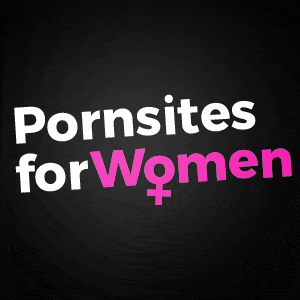by Calico Rudasill, Sssh.com.
With reports flying around about the porn industry possibly making an exodus en masse to Las Vegas and related reports about the AIDS Healthcare Foundation filing complaints against a porn studio that has already made that leap, the questions of whether, where and if it is legal to shoot porn in the United States is once again a topic of media discussion. Predictably, the media is oversimplifying the legal questions involved, or at best asserting something along the lines of ‘technically, it is only legal to shoot porn in California and New Hampshire.’

The truth is far more complicated than that, naturally.
Read on…
While it’s true that it is only clearly legal to shoot porn in California and New Hampshire, the same legal reasoning that the courts in those states used in coming to the conclusion that shooting porn isn’t prostitution might just hold up in any jurisdiction where the question is considered. To understand why, all you have to do is look at how and why it became clearly legal to shoot porn in California and New Hampshire in the first place.
In California, it all traces back to a landmark case, California v. Freeman, in which California prosecuted porn director Harold Freeman on pandering charges. Freeman was convicted at trial, a conviction that was upheld by the court of appeals, but later overturned by the California Supreme Court.
In a nutshell, the state’s highest court ruled that “in order to constitute prostitution, the money or other consideration must be paid for the purpose of sexual arousal or gratification.”
The key verbiage there, the lawyers tell me, is “for the purpose of sexual arousal or gratification,” and the fact that the court meant for the purpose of sexual arousal or gratification of the person who is footing the bill. Since Harold Freeman’s primary purpose was to create a sexually-explicit movie, and not to get his rocks off, California couldn’t sustain a charge of pandering against him. The court put a pretty fine point on their assessment of Freeman’s prosecution, calling it “a somewhat transparent attempt at an ‘end run’ around the First Amendment and the state obscenity laws.”
The Freeman case was originally decided by the jury in 1987. Following the overturning of the conviction two years later, no prosecutor anywhere brought pandering charges against a porn producer again for almost 20 years, until New Hampshire did so in the case New Hampshire v. Theriault. How did that case turn out for the New Hampshire prosecutors, you ask?
Spoiler Alert: Not very well.
Not so surprisingly, the New Hampshire Supreme Court issued a ruling very similar to that of the California court in the Freeman case; once again, the court found a clear distinction between paying people to have sex for the purpose of producing pornography and paying people to have sex for the purpose of your own sexual gratification.
“To uphold the conviction in the instant case, where the only facts adduced at trial were that the defendant offered to pay two people to have sexual intercourse while being videotaped, would infringe upon an area of speech protected by the State Constitution,” the New Hampshire court wrote. “The defendant was charged with offering to pay two individuals to engage in sexual penetration while he videotaped them. We note that the State did not charge the defendant with offering to pay them to engage in sexual contact, which would have required the State to prove that he acted for “the purpose of sexual arousal or gratification” and thus engaged in conduct that was not constitutionally protected.”
Other states have made some noise about prosecuting pornographers under their pandering and prostitution statutes, but so far, no prosecutor has followed through on the threat. In my home state, Arizona, it’s no secret that porn is being produced by a number of different companies. Back in 2012, when he caught wind of a rumor that some California studios might move their productions to Arizona as a result of the condoms-required mandate pending in Cali, Maricopa County Attorney Bill Montgomery warned that under Arizona law “anyone paid to appear in a pornographic movie may be guilty of the crime of prostitution, which carries mandatory jail time as well as the possibility of other penalties.”
Montgomery’s office later added that “Arizona law precludes the establishment of a ‘pornography industry’ to any degree such as that present in California.” Suuurrrure it does, Chief – just like California and New Hampshire’s laws made the production of porn illegal in those states, right?
Here we sit in 2014, and neither Bill Montgomery nor any other prosecutor in Arizona has brought charges against any of the porn producers currently operating within the state. If you believe that’s because Montgomery’s threat scared off all the porn producers, guess again; if anything, there’s more Arizona porn being produced than in 2012.
My hunch is that Bill Montgomery is well aware of both Freeman and Theirault, and is fully capable of reading the misspelled writing on the bathroom wall: it’s one thing to threaten a pornographer with prosecution under a state’s prostitution laws, but quite another to make any conviction you obtain stick, once you have to justify the whole thing to the court of last resort.
Montgomery knows that if he follows through on his threat, he risks accomplishing the opposite of his goal; the court very well could end up adding Arizona to the list of states where it’s clearly legal to shoot porn.
The AIDS Healthcare Foundation, which recently asserted, unequivocally (via Twitter) that “porn production is not legal in Nevada” might want to keep all this in mind as it pushes ahead with its ongoing war against the porn industry. If they prod prosecutors into action on that notion, the result might be simply opening up 48 more statewide fronts in the conflict, giving them an awful lot of monitoring to do, if they intend to continue to play the role of Condom Cop everywhere the porn industry rears its engorged head.









 Erotic Cinema For Discerning Adults
Erotic Cinema For Discerning Adults Anonymous Adult Search
Anonymous Adult Search
[…] them get away with it. It’s a little bit complicated, but if you’re curious about it, this here is about the clearest and simplest article you’re ever going to find to explain it to […]